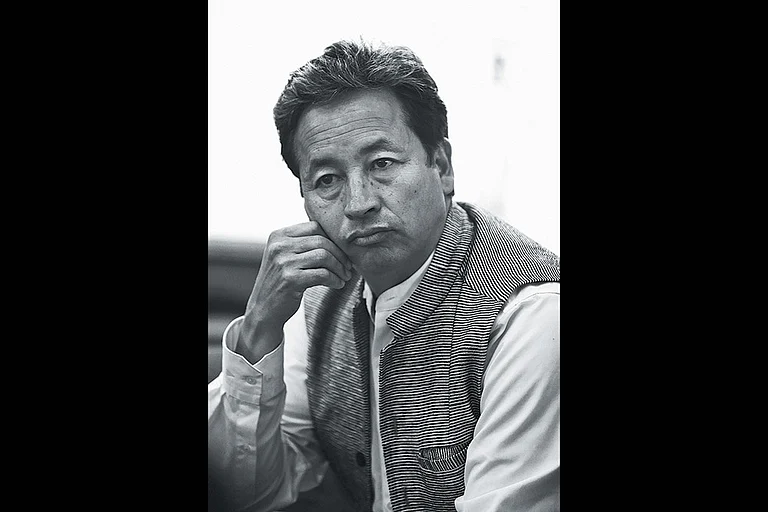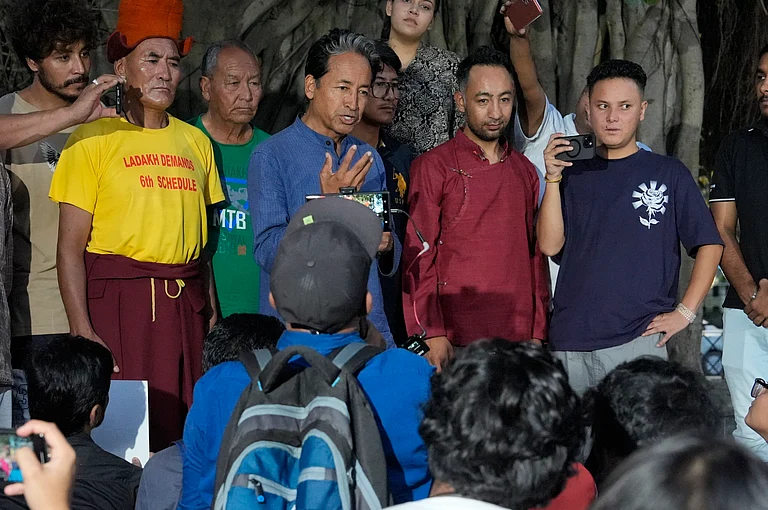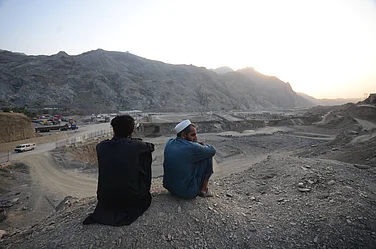
Curfew in Leh entered fourth day as security forces intensified patrols and detentions after recent violence.
Govt accused activist Sonam Wangchuk of inciting unrest through provocative speeches and misleading videos.
Over 50 people arrested, restrictions imposed across Ladakh; Wangchuk shifted to Jodhpur jail under NSA.
Curfew has continued for a fourth day in violence-hit Leh town of Ladakh on Saturday as police and paramilitary forces intensified patrolling and checking following the detention of climate activist Sonam Wangchuk under the National Security Act (NSA) the previous day, officials said.
The Lt Governor-led government defended Wangchuk's detention in a statement released late Friday night, claiming that his series of alleged provocative speeches—which included allusions to the Arab Spring and the Nepal agitation—were the cause of Wednesday's violence, which claimed four lives and injured numerous others.
It said that Wangchuk's arrest was "important to restore normalcy" in the peaceful town of Leh and to stop him from acting in a way that would be "prejudicial to maintenance of public order" in the future.
"There was no untoward incident reported from anywhere in Ladakh during the past 24 hours. The restrictions are in place to maintain law and order," an official said.
He stated that any decision to loosen curfew will be made in accordance with the high-level security review meeting that Lt. Governor Kavinder Gupta is hosting at Raj Bhavan in a little while.
According to the official, police and paramilitary forces have increased their patrolling and checking in the sensitive regions, and raids are being conducted to apprehend the rioters who have fled, including a councillor who is accused of starting the violence.
Following the skirmishes, more than fifty people were taken into custody, and other significant towns in the Union Territory, like Kargil, were still subject to stringent prohibitions against gatherings of five or more people.
The Directorate of Information & Public Relations (DIPR), Ladakh, in a statement late Friday night, said: "Time and again it has been observed that Wangchuk has been indulging in activities prejudicial to the security of the state and detrimental to maintenance of peace and public order and services essential to the community." It said that despite clear communication from the government regarding the meeting of the High-Powered Committee (HPC) and the offer of prior meetings before the HPC, Wangchuk, with his "ulterior motive", continued his hunger strike in the town from 10 September.
"His series of provocative speeches, references to Nepal agitations, Arab Spring, etc, and misleading videos resulted in the violent protests of 24 September in Leh, where institutions, buildings and vehicles were burnt down, and, in the aftermath, police personnel were attacked, leading to the unfortunate death of four individuals.
"The entire episode could have been avoided if he could have risen above his personal and political ambitions by calling off the hunger strike when the dialogue with the government was resumed on the same agenda," the statement said, referring to the demands for statehood and extension of the Sixth Schedule of the Constitution to the region.
The statement said it was important to restore normalcy in the peace-loving Leh town of Ladakh.
"To ensure this, it is also important to prevent Wangchuk from further acting in a manner prejudicial to the maintenance of public order. In the backdrop of his provocative speeches and videos, for the larger public interest, it was not advisable to keep him in Leh district," the statement said.
It stated that the administration carefully considered detaining Wangchuk under the NSA and sending him to the Jodhpur prison in Rajasthan after considering certain information.
With PTI input.



























